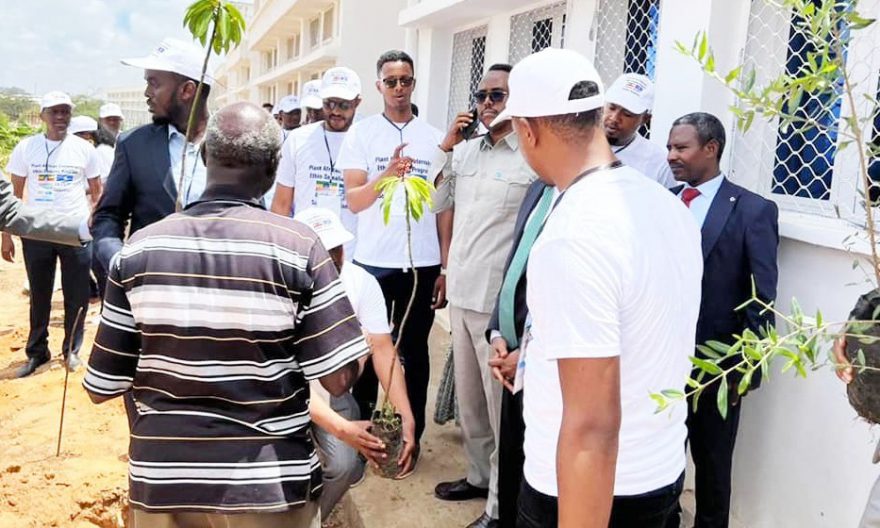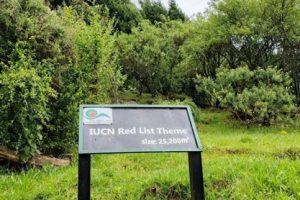
BY EPHREM ANDARGACHEW
Recent drought has highly affected the lives and livelihoods of many people in the East and Horn of Africa region. Especially, the pastoralist communities of the region are vulnerable to climate induce problems. Hence, the Intergovernmental Authority for Development (IGAD) region (IGAD) recognizes the ferocity of drought and its impacts that spread across the region. It also underlines the increasing climate vulnerability of the Eastern African region to the adverse effects of climate change.
The negative impact of drought along with serious water shortage has driven hundreds of thousands of people out of their homes in search of water and food, and high levels of malnutrition. Besides, hundreds of schools have closed down as the attendance and dropouts numbers have decreased and increased respectively.
During the World Day to Combat Desertification and Drought in 2022, the IGAD statement stated that the failed consecutive rainfall seasons have been characterized by delayed start, irregular distribution, and below-average cumulative seasonal rains, while the temperatures have remained above average across the seasons. The preceding and compounding impacts from other drivers of food insecurity, namely desert locusts, covid-19, conflict and insecurity, floods, and macro-economic factors, have exacerbated the impacts of the drought which in itself is the longest drought period recorded in the region in 40 years, which was highlighted in a Joint Alert in May 2022 issued by meteorological agencies and humanitarian partners.
In order to combat and reverse the negative impact of drought, IGAD, as a regional institution, has been giving direction and establishing platforms. The member states usually accredited the severity of the drought situation and reached an agreement to look beyond immediate assistance and rethink the region’s approach to resilience, in addition to accelerating short-term response to halt the impacts of the drought.
However, IGAD member states agreed to fight the impact of climate change including drought but their commitment is less and implementing programs and initiatives very slowly. Hence, dependence on sectors that are climate change sensitive such as rain-fed agriculture, water, tourism, and forestry becomes vulnerable to the region.
Cognizant of the negative impact of climate change, drought, and desertification into consideration, Ethiopia has been implementing a Green Legacy Initiative since 2019. Ethiopian Prime Minister Dr. Abiy Ahmed said that the Green Legacy Initiative program has aspirations to build a green and climate-resilient economy. It is also imperative to reverse climate change impacts and environmental degradation that contributed to flooding, soil erosion, deforestation, and biodiversity loss.
The initiative has accomplished a lot as it helped the country to plant over 25 billion tree seedlings. It also increases forest coverage including fruit trees which are significant to ensure food security and nutrition. Apart from combating climate change effects, the initiative has been contributing to ensuring economic development and food security. Since climate change is a global and continental problem, it requires cross-border cooperation and responses, PM Dr. Abiy said.
Accordingly, since 2019, the green legacy initiative acknowledges not only Ethiopians but also Ambassadors, International Organizations, and diplomatic communities. As a result, the Initiative has met its set objectives and brought various results that have been registered. Even UNDP has shown interest to share the initiative with 10 African countries.
Alhaji Fall, speaking on behalf of Ahunna Eziakonwa, Assistant Administrator and Regional Director for Africa at the UNDP explained that the initiative is a stepping stone to a better future for Ethiopia. Hence, UNDP has the plan to share the Green Legacy Initiative experiences with about 10 other countries and make the Initiative Pan-African since it sets the pace in combating climate change and fostering community resilience.
Apart from fighting the negative effect of climate change, more importantly, the initiative is important to strengthen regional cooperation. Deputy Prime Minister and Foreign Minister Demeke Mekonnen said that the Green Legacy initiative in Ethiopia strengthens regional cooperation and will ultimately serve as a crucial platform to ensure peace and stability in the region.
Since the inception of the initiative, Ethiopia has been accorded tree seedlings to some of the neighboring countries and has the plan to do the same this year to promote regional cooperation and combat the negative effects of climate change, he stated.
Indeed, Ethiopia, taking the principle of mutual development and cooperation into account, has been providing tree seedlings for neighboring countries which support the fight against climate change. Accordingly, Djibouti has planted for the third time this year. South Sudan also planted tree seedlings which are accorded by Ethiopia’s Green Development Diplomacy Youth representative.
The youth who represented Ethiopia in collaboration with Somalia youth planted tree seedlings with promoting of both fraternity and the Green Legacy Initiative. The youth planted tree seedlings in Mogadishu, Somalia. Ethiopian Ministry of Foreign Affairs Deputy Director of African Affairs Ambassador Jamaludin Mustafa said that the youth planted the seedlings which took from Ethiopia on the campus of the University of Somalia.
Moreover, the task of planting tree seedlings through the Green Legacy Initiative is imperative not only to build a green economy and expand the green legacy movement but also to a sense of brotherhood, he added.
Ethiopian Ambassador to Somalia Abdulfatah Abdullahi on his part said that 500 tree seedlings that are accorded from Ethiopia were planted by Ethiopians and Somali youth as a symbol of the two countries’ security, development, and economic ties.
Somalia Minister of Climate Change State Minister Adam Ibrahim noted that the Green Legacy Initiative is key to handing over the world we inherited from our ancestors to the coming generation.”
He also remembers that Somalia is a victim of drought every year. Therefore, the deed of both the youth of Ethiopia and Somalia contributes to the Green Somalia tree planting program and to reverse the impact of drought on both the lives and livelihoods, he underlined.
Alongside the plantation program, a panel discussion was held in which the youth of Ethiopia and Somalia participated together for the common development of the two countries. The youth have also created a group of social networking sites where they can continue their relationship and have started to continue their activities, he mentioned.
According to Deputy Prime Minister and Foreign Minister Demeke, the initiative requires support from bilateral and multilateral development partners. Because supporting the Green Legacy Initiative has an enormous advantage for national, regional, and international adaptation and mitigation of the harmful effects of climate change, biodiversity preservation, combating desertification, ensuring green development, guaranteeing food security, and achieving the SDGs.
It is right that the Initiative has an immense contribution to the efforts to meet international commitments such as the Paris Climate Change Agreement, the 2030 Agenda for Sustainable Development, and Agenda 2063: The Africa We Want.
THE ETHIOPIAN HERALD TUESDAY 25 OCTOBER 2022





